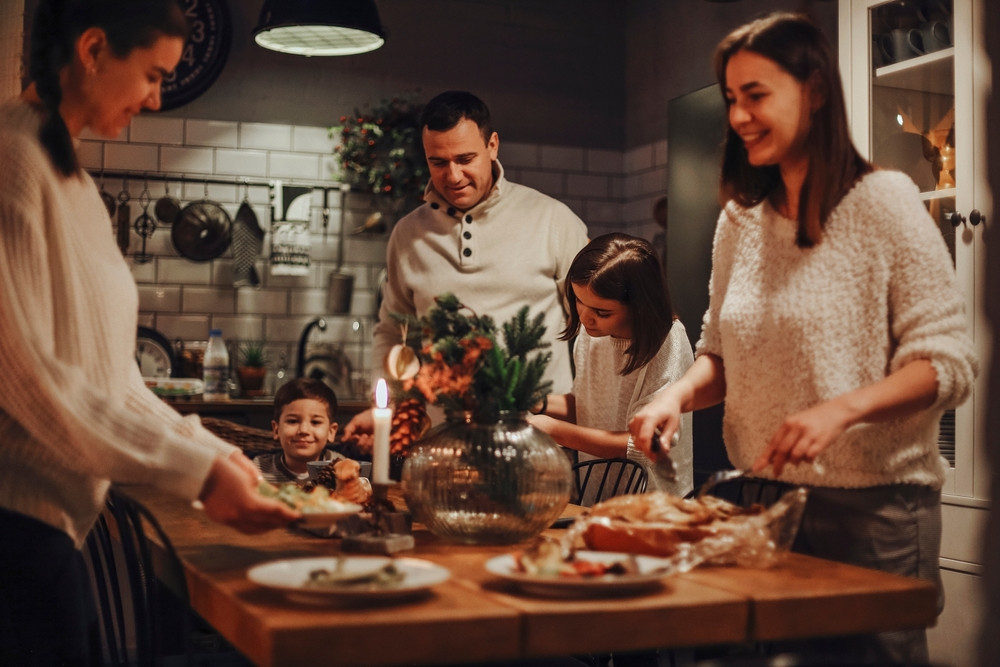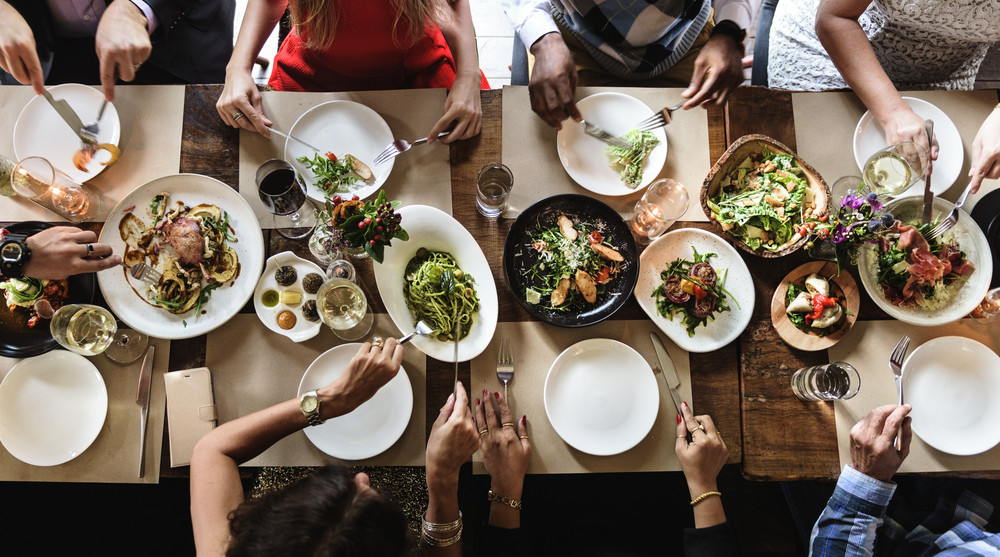Why Holiday Food Tastes Different When You’re on GLP-1
Eating Through the Holidays on GLP-1
The holidays are often defined by food—grand buffets, sugary desserts, and family traditions built around recipes. For many, the flavors of December are nostalgic and irresistible. However, if you’ve started a GLP-1 medication, such as semaglutide (Wegovy, Ozempic) or tirzepatide (Mounjaro, Zepbound), you may have noticed something unexpected: holiday food doesn’t taste the same.
Maybe the desserts you once craved feel too sweet, or that second helping of stuffing doesn’t spark the same excitement. This isn’t your imagination—it’s the result of how GLP-1 medications reshape appetite, satiety, and even the way your brain interprets flavor.
Let’s explore why holiday food tastes different on GLP-1s and what it means for enjoying the season without losing progress on your weight loss journey.
The Science of GLP-1 Medications and Appetite
GLP-1 stands for glucagon-like peptide-1, a hormone your body naturally produces after eating. It helps:
Slow down how quickly food leaves your stomach.
Signal feelings of fullness to your brain.
Regulate insulin and blood sugar levels.
When prescribed as medications, GLP-1s amplify these effects. The result? Reduced appetite, fewer cravings, and less interest in overeating—even when surrounded by rich holiday spreads.
But there’s another fascinating layer: GLP-1s don’t just influence how much you want to eat. They can also affect how food tastes.
Flavor and the Brain: Why Things Taste “Off”
Taste isn’t only about the tongue—it’s a sensory experience shaped by the brain.
Sweetness Perception: GLP-1s interact with the brain’s reward system (dopamine pathways). Foods that once triggered a “sugar high” may no longer light up the same pleasure centers. As a result, desserts can taste less satisfying—or even too sweet.
Fat-Rich Foods: High-fat holiday dishes, such as creamy casseroles or gravy, may feel “heavier” because GLP-1s slow digestion, leaving you full after only a few bites.
Alcohol and Indulgent Drinks: Many patients report that cocktails or eggnog taste stronger or less appealing, since GLP-1s change how the body processes sugar and alcohol.
In short, GLP-1s rewire your relationship with food. Instead of chasing flavors that fuel cravings, your body steers you toward moderation.
Why Holiday Food Feels Different on GLP-1s
1. Portions Shrink Naturally
Holiday meals are often oversized, but GLP-1s slow gastric emptying. That second helping of mashed potatoes may no longer seem appetizing because you’re still full from the first.
2. Desserts Lose Their Shine
Cookies, pies, and candy canes often feel overly sweet on GLP-1s. Your palate adjusts, and suddenly fruit or lightly sweetened dishes taste more satisfying than sugar-heavy desserts.
3. Cravings Fade Into the Background
Instead of obsessing over the dessert table, you may find yourself content to enjoy a single treat—or none at all. This is a huge shift for people who previously felt controlled by cravings.
4. Mindful Eating Becomes Easier
With less drive to overeat, patients often discover they can savor flavors more slowly. Holiday meals become about enjoyment, not indulgence.
Real-Life Holiday Scenarios on GLP-1s
At the Dessert Table: Where once you might have sampled every cookie, you now feel satisfied after half of one.
At a Holiday Party: Rich appetizers that used to tempt you may seem less appealing. Instead, lighter options, such as fruit trays or lean protein, stand out.
At family dinners, you enjoy the traditional dishes but stop naturally when you’re full, even if food is still on your plate.
These subtle yet powerful changes reflect how GLP-1s help restore balance to eating habits.
The Psychology of Taste and Reward
Food isn’t just fuel—it’s also emotional. During the holidays, comfort foods often trigger memories of childhood or family gatherings. GLP-1s can alter the intensity of these emotional rewards.
By calming the brain’s dopamine response, GLP-1s reduce the “reward rush” tied to overeating. This doesn’t take away enjoyment—it simply removes the compulsive urge to consume certain foods.
This is why many patients say, “I can still enjoy holiday meals—I just don’t feel the urge to overdo it.”
How to Navigate Holiday Eating on GLP-1s
1. Listen to Fullness Cues
Because your stomach empties more slowly, stop eating when you feel satisfied. Overeating can cause nausea or discomfort.
2. Taste, Don’t Overindulge
Take small portions of your favorite dishes. You’ll likely find a few bites are enough.
3. Stay Hydrated
Holiday foods are often salty and rich. Combine that with slower digestion, and hydration becomes even more critical.
4. Focus on Social Connection
With food cravings reduced, the holidays become less about “stuffing the plate” and more about enjoying people and experiences.
FAQs
Q: Does semaglutide or tirzepatide change how food tastes?
A: Yes. Many patients report that sweets and rich foods taste different or less appealing, likely due to changes in brain reward signaling.
Q: Why do I feel full so quickly on GLP-1s?
A: GLP-1s slow stomach emptying and increase fullness signals, so even small portions can feel satisfying.
Q: Can I still enjoy holiday meals on GLP-1s?
A: Absolutely. You’ll likely enjoy them in smaller portions, with a greater emphasis on flavor and less focus on cravings.
Q: Will this “taste change” last forever?
A: For most, taste perception shifts are linked to being on the medication. If discontinued, appetite and food preferences may gradually return to their baseline levels.
The Bigger Picture: Food Freedom
For people who have struggled with yo-yo dieting, binge eating, or sugar cravings, the holiday season can be stressful. GLP-1s help by taking away the constant mental battle over food.
Instead of feeling deprived, many patients experience a sense of food freedom—the ability to enjoy a few bites, feel satisfied, and move on without guilt.
Holidays Reimagined on GLP-1s
If you’ve noticed holiday food tastes different since starting semaglutide or tirzepatide, you’re not alone. GLP-1s change the way your body and brain respond to food, helping you enjoy flavors without overindulging.
This season, you may find yourself eating less, craving less, and focusing more on the people around you. And that’s the true gift of medical weight loss—it gives you back control, not just over your body, but over your relationship with food.
At Mind Matters Weight Loss Clinic in Longwood, FL, we specialize in personalized GLP-1 programs that help patients navigate real-life challenges, from holiday dinners to everyday cravings.
Ready to see how GLP-1s can help you take control of cravings? Contact Mind Matters Weight Loss today to schedule your consultation.





